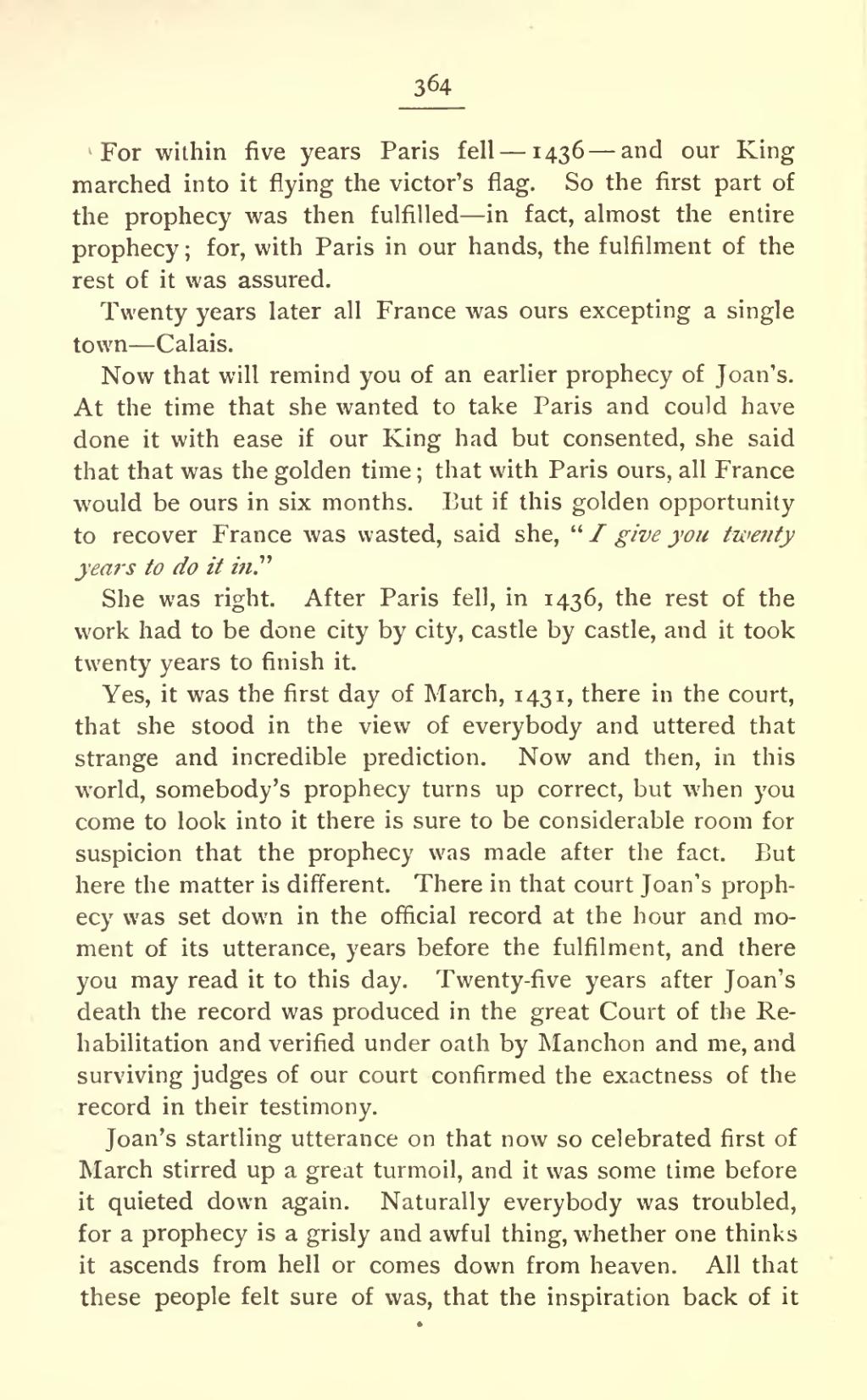364
For within five years Paris fell—1436—and our King marched into it flying the victor's flag. So the first part of the prophecy was then fulfilled—in fact, almost the entire prophecy; for, with Paris in our hands, the fulfilment of the rest of it was assured.
Twenty years later all France was ours excepting a single town—Calais.
Now that will remind you of an earlier prophecy of Joan's. At the time that she wanted to take Paris and could have done it with ease if our King had but consented, she said that that was the golden time; that, with Paris ours, all France would be ours in six months. But if this golden opportunity to recover France was wasted, said she, "I give you twenty years to do it in."
She was right. After Paris fell, in 1436, the rest of the work had to be done city by city, castle by castle, and it took twenty years to finish it.
Yes, it was the first day of March, 1431, there in the court, that she stood in the view of everybody and uttered that strange and incredible prediction. Now and then, in this world, somebody's prophecy turns up correct, but when you come to look into it there is sure to be considerable room for suspicion that the prophecy was made after the fact. But here the matter is different. There in that court Joan's prophecy was set down in the official record at the hour and moment of its utterance, years before the fulfilment, and there you may read it to this day. Twenty-five years after Joan's death the record was produced in the great Court of the Rehabilitation and verified under oath by Manchon and me, and surviving judges of our court confirmed the exactness of the record in their testimony.
Joan's startling utterance on that now so celebrated first of March stirred up a great turmoil, and it was some time before it quieted down again. Naturally, everybody was troubled, for a prophecy is a grisly and awful thing, whether one thinks it ascends from hell or comes down from heaven. All that these people felt sure of was, that the inspiration back of it

